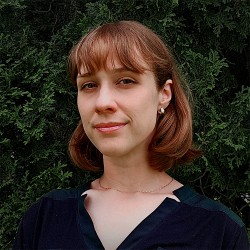How can energy efficiency help mitigate climate change? This topic got top billing at last week’s 2019 National Conference on Energy Efficiency as a Resource in Minneapolis. The 400-plus attendees discussed cutting-edge efficiency policies, programs, and technologies, as well as decarbonization, electrification, resilience, and grid-interactive efficient buildings.
The conference opened with speeches from Minneapolis mayor Jacob Frey, whose city placed fourth in ACEEE’s 2019 City Clean Energy Scorecard, Minnesota Lieutenant Governor Peggy Flanagan, whose state ranked eighth in our 2019 State Energy Efficiency Scorecard, and Patti Poppe, president and CEO of CMS Energy and Consumers Energy.
Here are some inspirational excerpts from their opening remarks.
Jacob Frey, Minneapolis Mayor:
I don’t need to get up here and tell you about the crisis we have on our hands in regards to [climate change]. These are scary times, and scary times require bold action.
We don’t want to just be ahead of the curve in Minneapolis, we want to help set the curve, and we are doing a lot of work in that direction. 46,191 Minnesotans work in the energy efficiency sector in local, well-paying, cutting-edge jobs. Three in every four energy jobs in Minnesota are in energy efficiency…
The environmental impact is just one piece of the puzzle; there are economic, social, and health impacts that are going to impact us daily. Minneapolis is the city that is the second most impacted by climate change in the entire country…We are seeing our winters change…It used to be that the thaw would take place over like a month, but now it takes place over the span of a day or two. This means that we have all the snow and rain draining into the sewer system and heading to the Mississippi —and by the way, our sewer system was made in many cases about a hundred years ago, and to accommodate a significantly lower population and lower population density than what we have now. We’re talking about millions of dollars we need to spend to figure out how to deal with all this water all at once.
Minneapolis is not unique in that perspective, but we are taking significant actions to change the game. We’ve got the goal to get to 100% clean and renewable electricity in our whole city by 2030. But we’re not stopping there. We want to make sure that we’re as energy efficient as possible. We’re doing several things in that regard. In February we passed comprehensive energy benchmarking and disclosure policies. This includes time of sale and time of rent energy disclosure inquiries as well as expanding benchmarking to include residential buildings.
We’re not stopping there, either. It is really good environmental policy to live in a city, but people don’t think that way. If you’re living 45 minutes away in the suburbs in a single-family home, you have a 45- minute commute in a machine. And you’re spending more time and carbon heating your home, which is not linked to any other homes. That has a really significant impact on the environment. We in Minneapolis, like many other cities, have a long legacy of setting up our zoning policy to exclusively allow single family home in chunks of the city. It’s not energy efficient, it’s not economical, and it’s not good for equity either. The conclusion is that we get rid of single-family exclusive zones in our city. That’s not outlawing single family homes, that just saying that in addition to putting up single-family homes you can also put up something more affordable and more environmentally sustainable…
Smarter energy use reduces the emissions that hurt our health, pollute our air, and hurt our climate. This work starts now. I know that all of you have a sense of urgency, and I want to tell you that Minneapolis is in partnership with you in leaning into that controversy and getting something done that is going to quite simply improve people’s lives and save our planet.
Peggy Flanagan, Minnesota Lieutenant Governor
Thank you ACEEE for hosting your conference here in Minnesota. In this state, we really recognize the importance of creating energy efficiency... Almost 15% of Minnesota’s electricity demand is met by energy-efficient manners, about the same as natural gas and a little less than wind. Minnesota continues to rank in the top 10 for our energy efficiency programs, and I certainly would like to get closer to number one while I am in office.
Because our utilities are running great programs, efficiency has met all our growth in electric energy demand since 2007. Minnesota’s economy is more than 30% larger in 2019 than it was in 2007, but we use the same amount of electricity and I think that is pretty exciting. This is huge, and our energy efficiency programs are the reason why we are so productive with our energy consumption.
Governor Walz and I believe that we are in a crisis when it comes to climate and it is our goal and our responsibility to do everything possible while we’re in office to turn the curve on this issue. We’ve introduced the One Minnesota path to clean energy. One of the three parts of this legislation is our new energy efficiency framework, which we call energy optimization. This allows us to increase efficiency and incorporate beneficial fuel switching into our programs. This will open up opportunities for electric vehicles and a number of new technologies to reduce emissions and be more efficient throughout our economy.
I know all of us have a personal story about why this work is important to us… Like so many of us, I am a parent of a child with asthma. I am fortunate enough to be able to access the healthcare needed so that she can have the medications to be able to run and play and life a healthy life, but as the mayor mentioned earlier, this is also an issue about equity, and many of the communities that are impacted by carbon emissions have less access to the things that can help mitigate the health issues…
As we continue to do this work and move boldly to the future around clean energy, let us hold on to the people, and to the narratives and the stories as to why we get up and do this work every single day as the motivator for all of us into the future.
Patti Poppe, President and CEO of Consumers Energy
You are doing amazing work across the country, and I hope to embolden you to do more, because as the Minneapolis mayor said, this is the cause of our lifetime and we have the opportunity through energy efficiency to absolutely help save the planet…
Our commitment to the planet runs very deep. We have pushed ourselves as a company to be leaders in this area. We believe that climate change is happening, and that we have an obligation to take actions to prevent the two-degree scenario from materializing. I’d like to think that we can be leaders and push and make a difference. We’ve got work to do! There’s no time to stand on the sideline and think that somebody else is going to do something about this. That is why I thought of all of you — all of you are doing something about this. All of you are taking your God-given talent, skills, and capabilities to work together and save the planet. It’s part of the reason why we are leading an energy transformation we can be proud of…
We have prevented building a power plant in Michigan because of our energy efficiency programs, and saved Michigan customers 2.5 billion dollar in energy costs at the same time. It’s fantastic… [Energy efficiency] is the leader, it is the thing that people should start with. People ask me all the time, “Should I be putting solar panels on my roof?” And I say, “No. Use less energy. Call us, let us come do a home audit, because we can shape the energy use curve before we have to build something… We’ve doubled the size of our energy efficiency program now in Michigan. We want 2% annual energy efficiency savings from electricity every year because of this, because if we can reduce our usage while we are retiring plants we can fundamentally—and it could not be more urgent—we can reduce the number of plants that we have the build …
The cleanest and cheapest kilowatt is the one we never use…People say close your plants faster, but if I closed my plants faster I would have to build new ones today. We actually need the time to implement demand savings. We have got to reduce people’s energy waste and we can but that is what is required to actually prevent building three new power plants in Michigan. That is the challenge, that is the opportunity.
We’re asking people to join the movement. You guys are part of the movement, you’re leading the movement, and I get that I’m singing to the choir here… but we can’t do it by ourselves. We need more innovation, more implementation, more technology, more savings. We just have to keep pushing, pushing, pushing, and helping people eliminate that waste.
Someday, I imagine being in the garden with one of my grandchildren… and she’s going to look up at me... and say, “Grandma, what’s climate change?” And I’m going to be able to look at her and say that…. it’s something that we used to worry about…
It is not an exaggeration to say that you are saving this planet for future generations. Please work harder, go faster, do more, and we’re going to make this happen. This is our potential. [Quoting Greek proverb:] A society grows great when people plant trees whose shade they shall never know.





